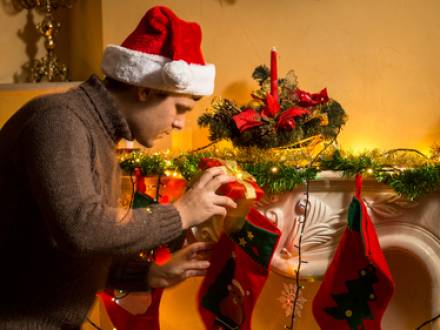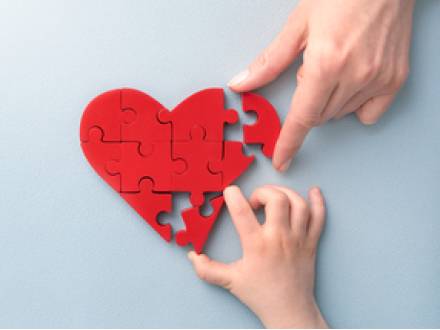Recent Blog Posts
How Holiday Parenting Time Works in Illinois
Posted on December 11, 2025 in Child Custody and Support
 Deciding how to split holidays can be a contentious part of co-parenting. You can try some common methods or come up with a unique schedule that suits your family. As long as it serves your children’s best interests, the court will likely approve. To learn more about creating a holiday parenting time schedule, speak to our experienced Kane County, IL parental responsibilities lawyer.
Deciding how to split holidays can be a contentious part of co-parenting. You can try some common methods or come up with a unique schedule that suits your family. As long as it serves your children’s best interests, the court will likely approve. To learn more about creating a holiday parenting time schedule, speak to our experienced Kane County, IL parental responsibilities lawyer.
How Do Co-Parents Usually Divide Parenting Time for the Holiday Season?
Illinois law recognizes that holidays disrupt regular schedules, and most parenting plans include a holiday schedule to accommodate them. The most common ways parents divide holiday time include:
How Alimony Works in High-Income Illinois Divorces
Posted on November 12, 2025 in Spousal Maintenance
 The financial side of divorce can become more complicated when it involves significant income and assets. High-income couples often receive income from bonuses, business ownership, or investments. These income sources can change from year to year, which makes it harder to calculate support. Working with a Geneva, IL high-income divorce lawyer can help you understand your rights and protect your financial future.
The financial side of divorce can become more complicated when it involves significant income and assets. High-income couples often receive income from bonuses, business ownership, or investments. These income sources can change from year to year, which makes it harder to calculate support. Working with a Geneva, IL high-income divorce lawyer can help you understand your rights and protect your financial future.
How Does Spousal Maintenance Work in Illinois?
In Illinois, alimony is called spousal maintenance, and the rules are outlined under 750 ILCS 5/504. This is money that one spouse pays to the other after the divorce. It helps a spouse with less access to financial resources maintain stability. It also gives them time to work toward financial independence.
Continue Reading ››
How Do I Adopt My Stepchild in Illinois?
Posted on October 09, 2025 in Adoption
 A stepparent adoption in Illinois gives you the same legal rights and responsibilities as a biological parent. It is also one of the most meaningful steps you can take for your family. It strengthens bonds and gives you the comfort of legal protection. With help from our Kane County, IL adoption lawyers, you will understand every step of the process.
A stepparent adoption in Illinois gives you the same legal rights and responsibilities as a biological parent. It is also one of the most meaningful steps you can take for your family. It strengthens bonds and gives you the comfort of legal protection. With help from our Kane County, IL adoption lawyers, you will understand every step of the process.
When Can a Stepparent Legally Adopt in Illinois?
Under the Illinois Adoption Act, a stepparent can adopt a child if certain conditions are met. You must be married to one of the child’s biological parents, and that parent must have full or shared custody of the child. The child must also have lived in your home for a period of time, showing that you have a stable family relationship.
Continue Reading ››
Using Collaborative Law for a Contested Divorce in Illinois
Posted on September 09, 2025 in Collaborative Law
 When couples cannot agree on the terms of their divorce, the process can quickly become complicated and emotionally draining. While many divorces in Illinois are contested, not every case has to result in a bitter courtroom battle. One available option is collaborative law. With the help of a skilled Geneva, IL collaborative divorce lawyer, spouses can often resolve disputes more respectfully and privately than through traditional litigation.
When couples cannot agree on the terms of their divorce, the process can quickly become complicated and emotionally draining. While many divorces in Illinois are contested, not every case has to result in a bitter courtroom battle. One available option is collaborative law. With the help of a skilled Geneva, IL collaborative divorce lawyer, spouses can often resolve disputes more respectfully and privately than through traditional litigation.
What Is a Contested Divorce?
A contested divorce occurs when spouses disagree on one or more issues. Disputes can stem from issues related to custody, child support, spousal maintenance, and division of marital assets. Under the Illinois Marriage and Dissolution of Marriage Act, Section 401 explains that a divorce may proceed even if one spouse objects, as long as the marriage is shown to be irretrievably broken. Contested divorces often take longer and cost more because they involve hearings, motions, and sometimes a trial.
Continue Reading ››
Common Methods of Business Valuation in Illinois Divorce Cases
Posted on August 18, 2025 in Business Valuation
 When a couple divorces in Illinois, dividing property often becomes one of the most contested issues. If one spouse owns or co-owns a business, determining the fair value of that business is critical. The court must know the accurate value to ensure an equitable division of marital property. An experienced Kane County, IL business valuation attorney can help you navigate the complex process of business valuation and protect your financial interests.
When a couple divorces in Illinois, dividing property often becomes one of the most contested issues. If one spouse owns or co-owns a business, determining the fair value of that business is critical. The court must know the accurate value to ensure an equitable division of marital property. An experienced Kane County, IL business valuation attorney can help you navigate the complex process of business valuation and protect your financial interests.
Most Common Approaches to Business Valuation in an Illinois Divorce
Illinois courts recognize several accepted approaches to valuing a business during divorce. The Illinois Marriage and Dissolution of Marriage Act, found in 750 ILCS 5/503, requires courts to divide marital property fairly, though not necessarily equally. To do this, the court often relies on expert testimony about the value of a business. The most common valuation methods include:
Continue Reading ››
What Are Common Ways People Hide Assets in an Illinois Divorce?
Posted on July 18, 2025 in Property Division
 The property division component of divorce, especially high-asset divorce, can be riddled with disputes. Unfortunately, hidden assets can be a real problem in many cases, more often when significant finances are involved. If you are going through a divorce and suspect your spouse is not being honest about what they own, a Kane County, IL hidden asset lawyer can help protect your interests.
The property division component of divorce, especially high-asset divorce, can be riddled with disputes. Unfortunately, hidden assets can be a real problem in many cases, more often when significant finances are involved. If you are going through a divorce and suspect your spouse is not being honest about what they own, a Kane County, IL hidden asset lawyer can help protect your interests.
Duty To Disclose During Divorce Proceedings in Illinois
In Illinois, divorcing spouses are required to be truthful about their finances. This means they must fill out detailed financial affidavits listing their income, expenses, assets, and debts. Hiding information or failing to disclose assets can have serious consequences. Your spouse could face penalties from the court or a less favorable property settlement.
Continue Reading ››
Do I Need My Ex’s Permission To Move With the Kids in Illinois?
Posted on June 17, 2025 in Child Custody and Support
 Being a parent does not mean that you cannot move whenever you want. No one can stop you. However, if you want to move with your child, and you are no longer in a relationship with their other parent, you may need to take the issue to court. Parental relocation can be a contentious subject. Consider how Illinois law handles it and reach out to an experienced Kane County family law attorney to find out how the laws apply to your case.
Being a parent does not mean that you cannot move whenever you want. No one can stop you. However, if you want to move with your child, and you are no longer in a relationship with their other parent, you may need to take the issue to court. Parental relocation can be a contentious subject. Consider how Illinois law handles it and reach out to an experienced Kane County family law attorney to find out how the laws apply to your case.
Illinois Rules on Relocation and Parental Responsibilities
Under Illinois law, the term "parental responsibilities" is used like the word "custody." It refers to decision-making obligations and parenting time associated with legal and physical custody. When a parent who has equal or majority parenting time wants to move with their child, Illinois’s rules regarding parental relocation apply.
Continue Reading ››
What Rights Do Unmarried Couples Have Under Illinois Law?
Posted on May 19, 2025 in Prenuptial and Postnuptial Agreements
 Today, it is not uncommon for couples to live together without the intention of getting married, even in a serious, long-term relationship. These couples generally live like they are married, commingling their assets, having children, and purchasing property together. If you live with a partner, you may wonder what will happen to your finances and property if it does not work out. Legal contractual agreements, like a cohabitation agreement, are recognized in Illinois and can be used much like a prenup. Consider speaking with a Kane County, IL family law attorney about what you and your partner can do to protect your rights.
Today, it is not uncommon for couples to live together without the intention of getting married, even in a serious, long-term relationship. These couples generally live like they are married, commingling their assets, having children, and purchasing property together. If you live with a partner, you may wonder what will happen to your finances and property if it does not work out. Legal contractual agreements, like a cohabitation agreement, are recognized in Illinois and can be used much like a prenup. Consider speaking with a Kane County, IL family law attorney about what you and your partner can do to protect your rights.
Does Illinois Have Common Law Marriage?
Some states afford couples most of the same rights as married couples if they have lived together for a while, have the ability and intent to marry, and present as a married couple despite not having a marriage license. However, the state of Illinois has not recognized common law marriage since 1905.
Continue Reading ››
What Should You Know About Prenuptial Agreements in Illinois?
Posted on April 17, 2025 in Prenuptial and Postnuptial Agreements
 Prenuptial agreements, also known as premarital agreements in Illinois, are a fair consideration for anyone getting married, regardless of socio-economic circumstances. These legal contracts typically outline the distribution of property in the event of divorce, but they can be much more complex. An experienced Geneva prenuptial agreement attorney will work with you and your future spouse to create a customized prenup with terms that make you both happy.
Prenuptial agreements, also known as premarital agreements in Illinois, are a fair consideration for anyone getting married, regardless of socio-economic circumstances. These legal contracts typically outline the distribution of property in the event of divorce, but they can be much more complex. An experienced Geneva prenuptial agreement attorney will work with you and your future spouse to create a customized prenup with terms that make you both happy.
Why Do People Have Prenuptial Agreements?
Prenuptial agreements are on the business end of marriage preparation. Couples typically enter them to ensure that property division occurs on fair terms should the relationship end in divorce. However, there are other good reasons to consider a prenuptial agreement. For example, if you were previously married and already have children, you may have property that you want to protect for them. You may also use the agreement to keep your business separate from marital property, an action that could save a significant amount of time and money during divorce proceedings.
Continue Reading ››
Should I Move Out of the Marital Home During My Divorce?
Posted on March 21, 2025 in Property Division
 The decision to stay or move out of the marital home during a divorce is not just about physical space– it can shape the outcome of your case. While packing your bags may seem like a way to avoid stress and conflict, it could have unintended legal and financial consequences. This choice can impact property division, child custody, and even your long-term economic stability. Before making a move, it is important to understand how leaving the home could affect your divorce proceedings. A knowledgeable Illinois divorce lawyer can help you navigate this complex decision.
The decision to stay or move out of the marital home during a divorce is not just about physical space– it can shape the outcome of your case. While packing your bags may seem like a way to avoid stress and conflict, it could have unintended legal and financial consequences. This choice can impact property division, child custody, and even your long-term economic stability. Before making a move, it is important to understand how leaving the home could affect your divorce proceedings. A knowledgeable Illinois divorce lawyer can help you navigate this complex decision.
Will Moving Out Affect Property Division?
Moving out does not mean you are giving up your ownership rights to the marital home. However, it could influence how a judge views property division in your case. For instance, if one spouse stays in the home, the judge may argue that he or she should be awarded the property, especially if he or she is the primary caregiver for the children.
Continue Reading ››







 Deciding how to split holidays can be a contentious part of co-parenting. You can try some common methods or come up with a unique schedule that suits your family. As long as it serves your children’s best interests, the court will likely approve. To learn more about creating a holiday
Deciding how to split holidays can be a contentious part of co-parenting. You can try some common methods or come up with a unique schedule that suits your family. As long as it serves your children’s best interests, the court will likely approve. To learn more about creating a holiday  The financial side of divorce can become more complicated when it involves significant income and assets.
The financial side of divorce can become more complicated when it involves significant income and assets.  A stepparent
A stepparent  When couples cannot agree on the terms of their divorce, the process can quickly become complicated and emotionally draining. While many divorces in Illinois are contested, not every case has to result in a bitter courtroom battle. One available option is
When couples cannot agree on the terms of their divorce, the process can quickly become complicated and emotionally draining. While many divorces in Illinois are contested, not every case has to result in a bitter courtroom battle. One available option is  When a couple divorces in Illinois, dividing property often becomes one of the most contested issues. If one spouse owns or co-owns a business,
When a couple divorces in Illinois, dividing property often becomes one of the most contested issues. If one spouse owns or co-owns a business,  The
The  Being a parent does not mean that you cannot move whenever you want. No one can stop you. However, if you want to move with your child, and you are no longer in a relationship with their other parent, you may need to take the issue to court.
Being a parent does not mean that you cannot move whenever you want. No one can stop you. However, if you want to move with your child, and you are no longer in a relationship with their other parent, you may need to take the issue to court.  Today, it is not uncommon for couples to live together without the intention of getting married, even in a serious, long-term relationship. These couples generally live like they are married, commingling their assets, having children, and purchasing property together. If you live with a partner, you may wonder what will happen to your finances and property if it does not work out. Legal contractual agreements, like a
Today, it is not uncommon for couples to live together without the intention of getting married, even in a serious, long-term relationship. These couples generally live like they are married, commingling their assets, having children, and purchasing property together. If you live with a partner, you may wonder what will happen to your finances and property if it does not work out. Legal contractual agreements, like a  Prenuptial agreements
Prenuptial agreements The decision to stay or move out of the marital home during a
The decision to stay or move out of the marital home during a 